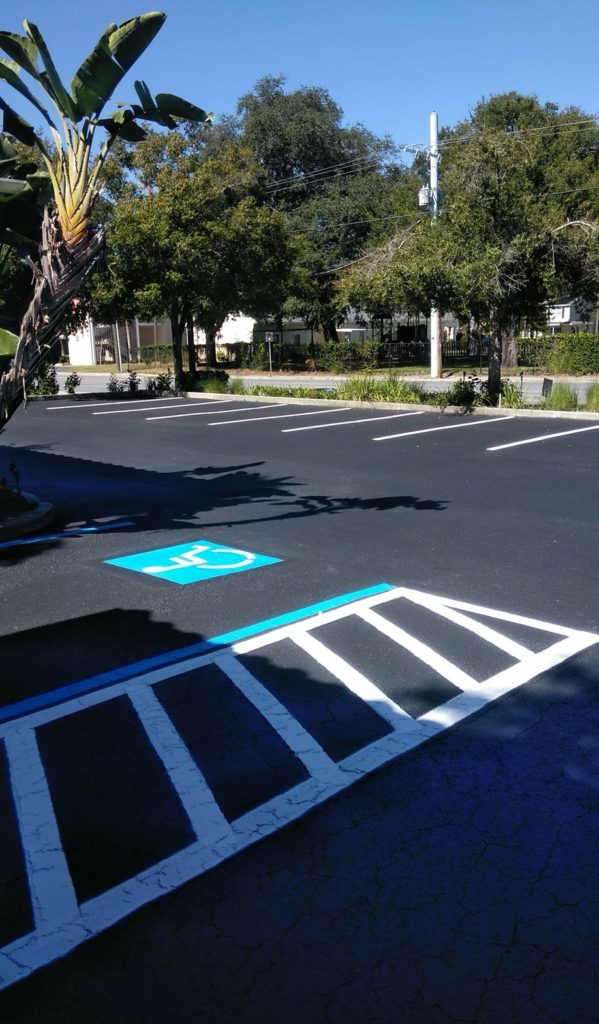Grasping Tilted Parking: How Asphalt Sealing Improves Commercial Whole Lots
Hot Mix Asphalt: A Sustainable Solution for Pavement
Hot Mix Asphalt (HMA) has actually become a leading sustainable choice for pavement services, providing a myriad of ecological advantages and cutting-edge modern technologies. Its ability to minimize and recycle materials energy consumption presents an engaging instance for its adoption in road construction projects. Moreover, the lasting efficiency and durability of HMA make it a recommended alternative for facilities advancement. As the need for eco-friendly construction techniques grows, exploring the subtleties of HMA's sustainability can supply important insights right into the future of pavement solutions.
Environmental Advantages of Warm Mix Asphalt

Additionally, Hot Mix Asphalt aids to alleviate urban heat island effects. Its dark shade takes in sunlight, reducing the quantity of warmth reflected back into the ambience contrasted to lighter-colored sidewalks. This can lower ambient temperatures in city areas, decreasing the demand for cooling and inevitably decreasing energy intake.
In addition, Hot Mix Asphalt adds to boosted stormwater administration. Its permeable nature permits water to infiltrate the sidewalk and reenergize groundwater products, reducing runoff and the danger of flooding. These ecological advantages make Warm Mix Asphalt a lasting choice for leading highways and roads.
Energy Efficiency in HMA Production
Is power efficiency a crucial factor in the manufacturing of Warm Mix Asphalt (HMA)? Energy plays a significant duty in the manufacturing of HMA, affecting both cost and ecological sustainability. One crucial aspect of power effectiveness in HMA production is the usage of warm mix asphalt (WMA) modern technologies.
Furthermore, innovations in plant technologies have actually led to even more energy-efficient HMA production processes. By maximizing power usage in HMA manufacturing, the sector can reduce its carbon footprint while keeping high-quality pavement products.
Recyclability of Warm Mix Asphalt
The recyclability of Warm Mix Asphalt (HMA) is a critical facet of its sustainability and lasting environmental effect. HMA is just one of one of the most recycled materials in the United States, with over 100 million lots of reclaimed asphalt pavement (RAP) being reused each year in new pavement construction. Recycling HMA uses numerous ecological advantages, such as reducing the need for virgin materials, reducing power intake throughout production, and decreasing the amount of waste sent to garbage dumps.
The procedure of reusing HMA involves milling the existing sidewalk, crushing it into smaller sized items, and mixing it with brand-new accumulation and asphalt binder to produce a recycled mix. Overall, the recyclability of HMA plays a significant duty in promoting sustainable techniques within the pavement industry.

Long-Term Efficiency of HMA
Asphalt sidewalks show toughness and resilience over an extensive period, showing the long-term performance of Warm Mix Asphalt (HMA) Additionally, improvements in HMA technology, such over here as the usage of polymer-modified binders and cozy mix asphalt, have additionally boosted the sturdiness and long life of HMA pavements. By prioritizing top quality construction and upkeep techniques, HMA continues to show itself as a lasting and cost-effective solution for lasting pavement framework.

HMA: Sturdiness and Sustainability
Demonstrating both durability and sustainability, Warm Mix Asphalt (HMA) has come to be a foundation in the construction of durable pavement infrastructures navigate to this website - commercial parking lot paving. HMA's sturdiness stems from its capacity to stand up to heavy lots, extreme weather problems, and high traffic quantities, making it a dependable selection for streets, freeways, and airport runways. The make-up of HMA, which generally consists of aggregates, binder, and filler, plays a critical role in improving its longevity and resistance to damage
Moreover, HMA's sustainability depends on its recyclability and energy-efficient manufacturing process. The capability to recycle redeemed asphalt pavement (RAP) in brand-new HMA mixtures decreases the need for virgin products and reduces the ecological influence of sidewalk building and maintenance. In addition, the power performance of producing HMA lies in its lower mixing temperature levels contrasted to various other sidewalk materials, resulting in minimized power intake and greenhouse gas emissions.
Conclusion
Finally, warm mix asphalt (HMA) supplies a sustainable solution for pavement with its ecologically friendly attributes. HMA's angled parking recyclability, power efficiency in production, and long-lasting resilience make it a green selection for roadway construction. By conserving all-natural sources, reducing waste, and reducing greenhouse gas discharges, HMA plays a vital function in promoting sustainability in facilities development. Its ability to mitigate city warmth island results better emphasizes its value in producing eco mindful and resilient pavement systems.
HMA is one of the most recycled materials in the United States, with over 100 million tons of redeemed asphalt pavement (RAP) being recycled each year in brand-new pavement building and construction.The procedure of recycling HMA entails grating the existing sidewalk, crushing it right into smaller items, and mixing it with brand-new aggregate and asphalt binder to develop a recycled mix.Asphalt sidewalks show toughness and resilience over an extensive period, mirroring the long-lasting efficiency of Hot Mix Asphalt (HMA) In addition, improvements in HMA technology, such as the usage of polymer-modified binders and warm mix asphalt, have actually even more boosted the resilience and durability of HMA sidewalks. The capacity to recycle recovered asphalt sidewalk (RAP) in new HMA mixtures reduces the demand for virgin products and minimizes the environmental influence of pavement building and upkeep.